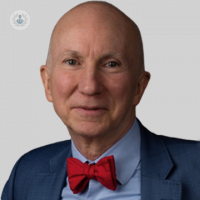Decoding anxiety: From definition to solutions
Autore:Anxiety, a common feeling of uneasiness about past or future events, affects both the mind and body. In his latest online article, Dr George Fieldman explores its definition, physical manifestations, symptoms, evolutionary roots, and practical ways to address and treat it. His aim is to provide a straightforward understanding to empower individuals in managing anxiety more effectively.

How is anxiety defined?
Anxiety is a general uneasiness and worry about events, whether they occurred in the past or the future. This emotional state is often linked to the apprehension that we might struggle to handle the challenges or threats before us.
How does it show in the body? What does it feel like?
Anxiety presents itself through the activation of the sympathetic nervous system, resulting in an accelerated heart rate, increased adrenaline levels in the bloodstream, palpitations, perspiration, and a heightened tendency to blush.
Are there different causes of anxiety?
The basis of anxiety lies in its evolutionary purpose to safeguard us in situations with potential threats. The physiological responses, such as elevated blood pressure and a faster heartbeat, are designed to prepare us for the fight-or-flight response—whether to confront a real danger or address fears that may or may not be real. It is natural and beneficial to experience fear in the face of actual dangers, but the connection between fear and genuine danger is often weak. In many cases, especially in Western societies, people tend to fear things that are unlikely to pose a genuine threat, yet anxiety levels persist at elevated levels.
What are the best ways to treat anxiety?
Isaac Marx, a renowned psychiatrist, emphasised that any effective treatment for anxiety disorders must involve exposure to the feared stimuli. This principle applies to a range of anxiety disorders, including generalised anxiety disorder, panic disorder, and prevalent social anxiety. Graded exposure is the essential and enduring method for addressing these conditions. In this therapeutic process, individuals assume control of their situations while gradually exposing themselves to feared stimuli under the guidance of a psychologist. Social anxiety, particularly common among young people, presents unique challenges due to its dynamic and variable nature in social interactions. Despite this complexity, exposure remains a pivotal element, leading to a gradual reduction in social anxiety and other anxiety-related concerns over time.
Dr George Fieldman is an esteemed chartered psychologist. You can schedule an appointment with Dr Fieldman on his Top Doctors profile.


